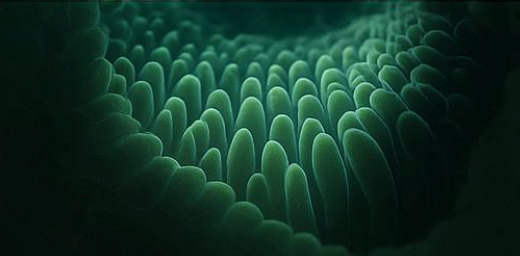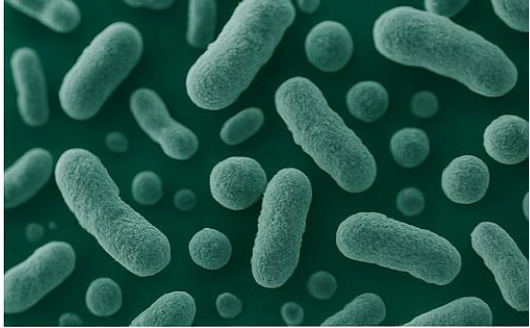39 trillion
Microorganisms in your body
3%
your body weight
15g
Bacteria excreted daily
What is the microbiome?
The human microbiome consists of a variety of microorganisms that can be found on all of our body surfaces, such as: in the mouth, intestines, vagina and on the skin. It consists mainly of bacteria, but also fungi, yeast, archaea and viruses.
According to current estimates, the human microbiome contains around 39 trillion of these microorganisms; This is on the order of the number of cells in an adult “standard human” (30 trillion).
Most of these microorganisms live in the intestinal tract (intestinal flora).
In addition, the skin surface (skin flora) and the mucous membrane of all cavities in the human body, which communicate directly or indirectly with the outside world
Connected, populated, such as the oral cavity, nasal cavity, paranasal sinuses, tympanic cavities, vagina, etc.
REF: https://de.wikipedia.org/wiki/Mikrobiom
The human microbiome is so important that it is often referred to as a “forgotten organ.” It plays a crucial role in maintaining our health through various mechanisms.

adapted from: https://www.sciencerepository.org/the-invisible-us-the-human-microbiome-in-health-and-diseasehttps://dx.doi.org/10.31487/sr.blog.07
Why is the microbiome so important for our health?
The intestinal flora is now seen as an important factor in maintaining balance in our cells. The intestinal flora consists, among other things, of over 500 different types of bacteria that perform important tasks: They support metabolism, protect against harmful pathogens and strengthen the immune system.
The body's immune system and the intestinal flora work together in a kind of partnership. They activate various defense mechanisms of the body - both innate and learned immune reactions. These include, for example, the production of mucus, the formation of antimicrobial proteins (these are proteins that fight germs) and the production of immunoglobulin A (a certain type of antibody).
What role does nutrition play on our microbiome?
Without a doubt, diet plays the biggest role in the composition of the intestinal flora. Through our diet, we introduce different chemical substances into our intestinal ecosystem at different times depending on our eating habits.
On the other hand, physical functions, the state of the immune system and metabolic ability also influence how the body reacts to the colonization of bacteria and which specific types of bacteria can colonize in the intestine.
In other words: Diet influences the intestinal flora, but at the same time the body itself (through its immune system and metabolism) determines which bacteria are allowed to colonize and how it reacts to them. So it's an interaction in both directions.
How can you positively influence the microbiome?
Did you know that we excrete around 15 grams of intestinal bacteria every day?
Through a diet rich in fiber, we can have a positive influence on our microbiome.
The two most common groups of bacteria in humans (and also in mice) are:
- Firmicutes (40–60%)
- Bacteroidetes (20–40%)
Actinobacteria, Fusobacteria, Proteobacteria and Verrucomicrobia also occur in smaller numbers.
Current studies show that certain diets with foods rich in polyphenols (secondary plant substances) can have a positive effect on the intestinal flora. These include:
- Dealcoholized red wine polyphenols
- Cocoa flavanols
- Quercetin (found in onions, apples, berries)
- Grape anthocyanins (pigments in dark grapes)
These food components can change the composition of the intestinal flora by:
- Reduce the number of Firmicutes bacteria
- Proliferate beneficial bacteria such as bifidobacteria, lactobacilli and verrucomicrobia
Why is this important? This change in bacterial composition is an important difference between the intestinal flora of overweight and slim people. People with a healthy weight often have a more favorable composition of their intestinal bacteria, which are less efficient at extracting energy from food.
What benefit do probiotics have on our microbiome?
Probiotics are living microorganisms (usually useful bacterial strains) that can be taken specifically to improve the intestinal flora.
Special probiotic blends of multiple bacterial strains can:
- Reduce harmful, inflammatory intestinal bacteria
- Promote the production of short-chain fatty acids (important metabolic products with positive effects)
- Restore the balance of intestinal flora
- Have positive effects on metabolism
Why is this important? This change in bacterial composition - whether through diet or probiotics - is also an important difference between the intestinal flora of sick and healthy people.
All diseases arise in the intestines
Paracelsus (1493-1541)
How does the microbiome change during illness?

What is dysbiosis?
Dysbiosis refers to an imbalance in the composition of the intestinal flora.
This imbalance can trigger or promote various diseases via inflammatory processes.
What happens with dysbiosis?
Less diversity: The number of different types of bacteria in the intestine decreases sharply.
Unfavorable shifts: Harmful bacteria multiply while beneficial bacteria decline.
In which diseases does the microbiome play a role?
- Intestinal diseases: Chronic inflammatory bowel diseases such as ulcerative colitis and Crohn's disease
- Metabolism: Obesity, diabetes and cardiovascular diseases
- Brain and psyche: Parkinson's, Alzheimer's and depression
- Cancer: In the case of black skin cancer, the bacterial diversity was higher in the early stages than in the late stages
What harms the intestinal flora?
- Antibiotics: Can damage the microbiome over months to years
- Other medications: Every fourth approved active ingredient changes the intestinal flora, for example stomach protectants
- Unfavorable diet: Western diet and additives in processed foods reduce diversity
- Lifestyle: Stress, smoking, obesity and lack of exercise
What causes a disturbed intestinal flora?
The intestinal mucosa becomes more permeable, which means that harmful substances can enter the body more easily. This is then referred to as a “permeable intestine” (called “leaky gut” in English).
Important: For many diseases, it is still unclear whether dysbiosis causes the disease or vice versa
Would you like to optimally support your microbiome?
Discover how PUROVID can support your microbiome and therefore your health through scientifically based formulations.
Further questions?
Get in touch




